hankyoreh
Links to other country sites 다른 나라 사이트 링크
[Column] A sneak peek at a utopian second season of “Squid Game”
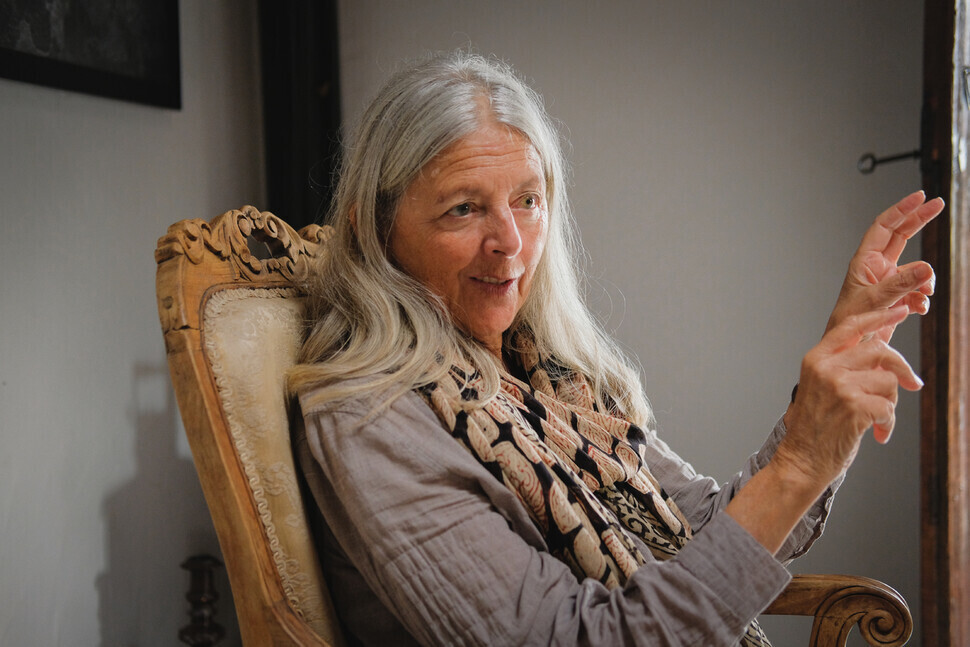
From the dark, dystopian days of 2021 comes a dark, dystopian fictional tale called “Squid Game.” Originating from South Korea, it rapidly sweeps the world, beamed — by the largest entertainment company ever to exist — into the lives of over 100 million people. It becomes the No. 1 Netflix show in 94 countries.
It is perhaps ironic, given the hellish world we witness every night on the evening news, that so many people were eager to binge on such morbid fiction. Can we not get enough doom and gloom?
But who knows, maybe the second season of “Squid Game” will turn out to be just the opposite! Maybe, writer Hwang Dong-hyuk will decide, “We’ve already filled this world with too much dystopia. Now’s the time to focus on a positive, life-affirming reality!”
Well, Netflix might not fund it, for fears it would come off as laughably unrealistic. People want gore and horror! They want their darkest fears brought to life before their eyes! They don’t want happy endings and optimism!
Or do they?
Since the success of my book “Ancient Futures” — which became a bestseller in South Korea — I have traveled the world, working with a quiet but growing movement of people who are bringing a very different future to life.
In ecovillages, transition towns, local food movements, “slow life” movements and more, people are stepping out of the squid game of global consumer capitalism, and choosing to rebuild their connections to nature and community. The bottom-up emergence of local business alliances, local finance schemes, and community-owned energy projects is helping people meet their needs in more sustainable and equitable ways. Most inspiring of all is the vibrant local food movement taking off in every corner of the globe — in the form of farmers’ markets, community gardens, permaculture projects, urban farms, local food cooperatives, and edible schoolyards. These are living, breathing models of social and ecological sanity.
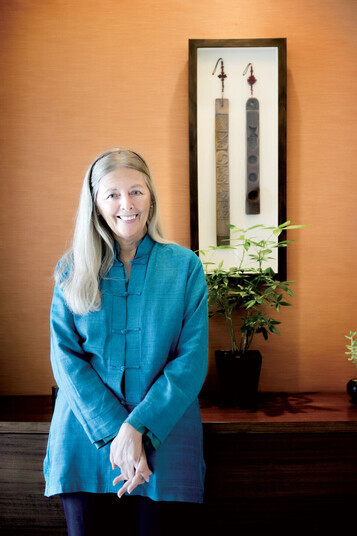
They are also proof that the human instinct towards collaboration can’t be quashed. It’s an instinct that is even evident in “Squid Game,” in those fleeting but powerful moments when characters lend an unconditional helping hand to others.
Outside of the fantasy world of streaming entertainment, I continually encounter people who are trying to forge a different, more humane path. Like young Ella, a lawyer in New York, who found that conventional law had become so corrupted with commercial influence that she joined a grassroots movement to settle disputes out of court at the community level. Or Nick, the son of three generations of conventional farmers in Australia, who overhauled the family business to go organic for the wellbeing of the land and his community. Even during the height of the COVID pandemic, when it was difficult to meet face-to-face, people formed neighborhood groups to support one another and ensure that the vulnerable and aged were looked after.
While you’re unlikely to hear about it on Netflix, this movement is growing at the grassroots on every continent, quietly presenting a powerful systemic alternative to the unsustainable, debt-based dystopia that is today’s global economy. I call this movement “localization” because — in direct opposition to globalization — it reweaves face-to-face relationships by shrinking the distances between producer and consumer. It’s about building real-world, human-scale, interdependent, local economies which strengthen community and the human connection to nature.
It may surprise some readers to learn that the country that gave the world K-pop and “Squid Game” is also home to a significant number of localization initiatives. In 2014, I traveled through South Korea working with municipal governments, transition villages and grassroots groups. In Seoul, I came across several communities, including one of my favorites: an ecovillage at the foot of a small, wooded hill in northwest Seoul, called Seongmisan.
Seongmisan began with a community-run childcare center and grew alongside the struggle to protect the Seongmisan hill from industrial development. By the time I visited, Seongmisan had grown to involve an impressive 700 households and 2,000 people, as well as 70 businesses, including organic food cooperatives and restaurants, a small theatre, an ecological soap producer, two alternative schools, and even a dental practice. All these institutions embodied a clear departure from modern consumerism, instead encouraging collaboration, short and accountable supply-chains, sustainability, and face-to-face connection.
In a megacity like Seoul, Seongmisan was a bit of an oasis. Since its beginnings, this urban village had organically expanded outwards — less like a quick and more like an intelligent octopus — adopting more and more households and quietly contributing to a transformation of values and economic structures. Seongmisan is one of countless hubs across the world that are bringing to life a more beautiful future.
Many of the people pioneering such initiatives have tasted “success” in the modern system. They have worked well-paid corporate jobs, only to realize the profound emptiness of that way of life.
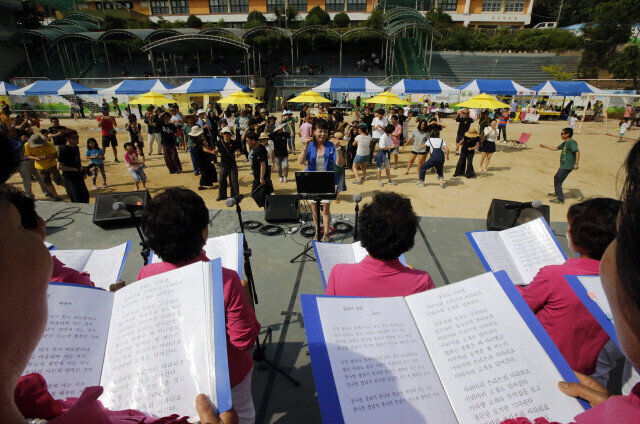
It’s a trend that is mirrored in the hit show’s loveable protagonist Seong Gi-hun’s final realization that he was playing the wrong game all along. In chasing money, he lost his closest relationships, betrayed his own humanity, and ultimately found himself traumatized and racked by guilt. He didn’t touch his winnings, realizing that no amount of money can buy happiness.
But “Squid Game” writer Hwang Dong-hyuk offers more than just these timeless, somewhat cliched lessons, repackaged in cutting-edge drama and gore. He also offers a poignant and important critique of the global capitalist economy that is the lived reality of most people today. He depicts the obscene gap between rich and poor, rampant addiction (including to gambling and gaming), and the cutthroat competition for money and status that erodes our humanity and breaks down our relationships.
Hwang portrays how, for many people, this leads to the feeling that life in the “real world” is so unbearable that they are willing to do anything to escape it — anything to get out of a trap of enslavement and debt in a consumer rat-race where we can never get “enough.”
In this way, dystopian fiction can play an important role. It can wake people up to the heinousness of what we have almost completely normalized. It is also my hope that the success of “Squid Game” attests to a widespread desire to fundamentally change our way of life.
But in the real world, there isn’t a handful of masked figures sitting around and plotting how to torture ordinary people for their entertainment. Instead, we have widespread ignorance — blind CEOs and policymakers following the mantra of GDP, growth, and corporate expansion. And there is a global populace that’s unknowingly complicit in handing over legitimacy to an ever-smaller group of billionaires.
Is there any hope that this system can be transformed?
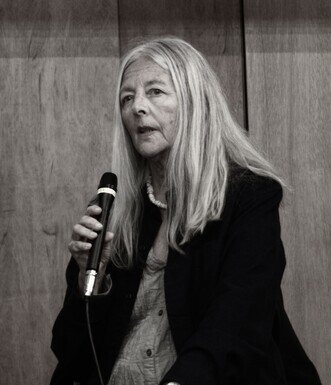
Well, maybe. But if Seong Gi-hun — or any one of us, for that matter — wants to start dismantling the squid game that is global capitalism, we need to identify the real evil mastermind. This starts with the recognition that the culprit is not an individual, but a process — namely, that of globalization. This is an economic process that gives unaccountable, multinational corporations and banks increasing freedom to determine government policies and shape entire cultures.
In the last forty years of globalization, countries around the world have been made more and more vulnerable: they are increasingly incapable of producing for their own needs and must instead depend on giant corporations and global trade. Their citizens, meanwhile, have been pulled away from interdependent community relationships, into atomized competition for increasingly scarce jobs.
In real-world terms, this means ordinary people are having to work harder just to stay in place, as the cost of living steadily grows and the buying power of the average household declines. Scholars and economists have shown this to be true. For example, in her book “The Overworked American,” Harvard economist Juliet Schor showed how, even as GDP quadrupled between 1970 and 1990, the average American had to work the equivalent of one month more per year to reach the same level of prosperity.
Time pressure, social atomization, and intense competition trickle down to us all, even into the lives of young children. In a bid to attract corporate investment, governments continually adjust their education systems to create a technologically-skilled labor force, leading to oppressive schoolwork schedules and stress that drive epidemics of depression, anxiety and suicide. To add insult to injury, psychological security is replaced by social media “friends” and the illusion of status and belonging through the acquisition of consumer goods.
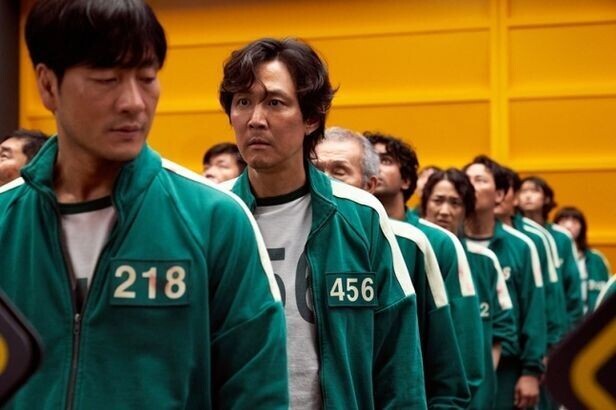
These complex, systemic factors may pose a problem for Hwang Dong-hyuk, who left us at the end of the first season with the hope that the new, pink-haired superhero Gi-hun was on his way to take on the brutal game’s mastermind and save the people. But having starkly revealed the depravity of the “real world” and making a clear critique of the modern economy, a second season that focuses only on a hero’s quest to conquer a masked villain will be woefully inadequate.
What we need is a systemic solution — a way to challenge the global economy itself. In that light, I present my outline for a forward-looking, utopian, and only slightly romanticized second season of “Squid Game”:
The story resumes with Gi-hun on his way to take on the evil mastermind, when he encounters real-world problems he just can’t ignore. He sees Seoul’s “metaverse” infrastructure expanding, as an entire generation gets sucked into new depths of social media addiction, isolation and consumerism. He meets his old gambling buddy, whose new obsession with trading virtual world cryptocurrencies and “non-fungible tokens” has led him to abandon his real-life friends and family.
On a drunken amble, Gi-hun encounters a cooperative cafe in Seongmisan. He feels moved by how people look him in the eye with wide-open smiles. They give him a glass of water to help wash away his hangover.
Gi-hun returns again and again to this cafe, where he eats nourishing local food and observes the warm interactions in this intergenerational community. He befriends a child, who takes him to Seongmisan’s “House of Happiness through Communication,” where he ends up preparing meals and playing music with others. Slowly but surely, Gi-hun feels his own trauma begin to heal.
Learning that Seongmisan is struggling to stay afloat against a barrage of commercial development, an idea strikes him. He decides to put all his squid game winnings into a community fund, to help the village expand their projects, and to launch educational campaigns to show more people how another way is possible. He begins working with other localization initiatives — not only in Korea, but around the world — to raise a call for systemic change.
Soon, Gi-hun finds himself in the midst of a global movement that is taking on giant multinational corporations — an epic David and Goliath battle. The movement’s message is: “Change the rules of the game! Shift subsidies, taxes and regulations! Rebuild local economies and real democracy!”
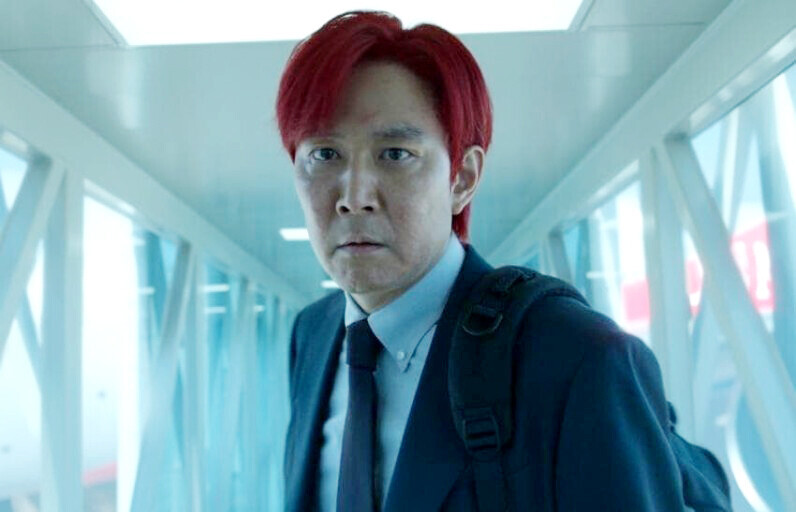
Through this global movement, Gi-hun even reconnects with his beloved daughter, Ga-yeong, who now lives in Los Angeles. The superficiality and spiritual poverty of the fast-paced, competitive life in Los Angeles, where the corporate economy has been breaking down community for many generations, has left her sad and depressed. Ga-yeong explains to her father that living in America has given her a greater appreciation for Korea, where people still have a cultural memory of what’s important: tight-knit community bonds, the vital relationships between the old and the young, and deep connections to the rivers and forests.
Soon, Ga-yeong, comes home in search of a more meaningful life. She spends time with her father learning real-life skills from members of Seongmisan. They learn wood-carving and pottery, gardening, wine-making and meditation. She finds humble but fulfilling work at a local market and spreads the word to others about the value of organic food and ecovillage life. Her depression is gone, and she has found happiness.
It’s not all easy. At times, Ga-yeong’s anger at her once-absent, alcoholic father resurfaces, and Gi-hun is forced to face up to the past and make amends. But, with the support of a whole community, they are surprised at how quickly their trauma heals.
Gi-hun’s campaigns to expose and oppose the squid game-like mechanisms of the global economy sometimes feel hopeless. But his persistence pays off, and healing on a wider scale starts to spread. More and more communities begin awaking to the possibility of stepping out of the consumer culture by reweaving local interdependence. A major transformation sweeps the whole country, leaving Gi-hun and Ga-yeong happy and amazed.
In the final scene of this second season, Gi-hun once again spots some of the squid game recruiters trying to enlist new players in Seoul’s subway. He smiles to himself as he sees people reject their predatory advances: no one is desperate enough to play that sick game anymore.
Helena Norberg-Hodge is a pioneer of the new economy movement and recipient of the Alternative Nobel prize, the Arthur Morgan Award and the Goi Peace Award for contributing to the "revitalization of cultural and biological diversity, and the strengthening of local communities and economies worldwide." She is the author of the inspirational classic "Ancient Futures," and "Local is Our Future" (2019) and producer of the award-winning documentary "The Economics of Happiness." Helena is the founder and director of Local Futures and The International Alliance for Localization, and cofounder of the International Forum on Globalization and the Global Ecovillage Network. www.localfutures.org
Please direct questions or comments to [english@hani.co.kr]

Editorial・opinion
![[Column] Park Geun-hye déjà vu in Yoon Suk-yeol [Column] Park Geun-hye déjà vu in Yoon Suk-yeol](https://flexible.img.hani.co.kr/flexible/normal/500/300/imgdb/original/2024/0424/651713945113788.jpg) [Column] Park Geun-hye déjà vu in Yoon Suk-yeol
[Column] Park Geun-hye déjà vu in Yoon Suk-yeol![[Editorial] New weight of N. Korea’s nuclear threats makes dialogue all the more urgent [Editorial] New weight of N. Korea’s nuclear threats makes dialogue all the more urgent](https://flexible.img.hani.co.kr/flexible/normal/500/300/imgdb/original/2024/0424/7317139454662664.jpg) [Editorial] New weight of N. Korea’s nuclear threats makes dialogue all the more urgent
[Editorial] New weight of N. Korea’s nuclear threats makes dialogue all the more urgent- [Guest essay] The real reason Korea’s new right wants to dub Rhee a founding father
- [Column] ‘Choson’: Is it time we start referring to N. Korea in its own terms?
- [Editorial] Japan’s rewriting of history with Korea has gone too far
- [Column] The president’s questionable capacity for dialogue
- [Column] Are chaebol firms just pizza pies for families to divvy up as they please?
- [Column] Has Korea, too, crossed the Rubicon on China?
- [Correspondent’s column] In Japan’s alliance with US, echoes of its past alliances with UK
- [Editorial] Does Yoon think the Korean public is wrong?
Most viewed articles
- 1‘We must say no’: Seoul defense chief on Korean, USFK involvement in hypothetical Taiwan crisis
- 2[Reportage] On US campuses, student risk arrest as they call for divestment from Israel
- 3[Column] Park Geun-hye déjà vu in Yoon Suk-yeol
- 4‘Weddingflation’ breaks the bank for Korean couples-to-be
- 5Korea sees more deaths than births for 52nd consecutive month in February
- 6N. Korean delegation’s trip to Iran shows how Pyongyang is leveraging ties with Moscow
- 7Amnesty notes ‘erosion’ of freedom of expression in Korea in annual human rights report
- 8Will NewJeans end up collateral damage in internal feud at K-pop juggernaut Hybe?
- 9N. Korean hackers breached 10 defense contractors in South for months, police say
- 10[Guest essay] The real reason Korea’s new right wants to dub Rhee a founding father